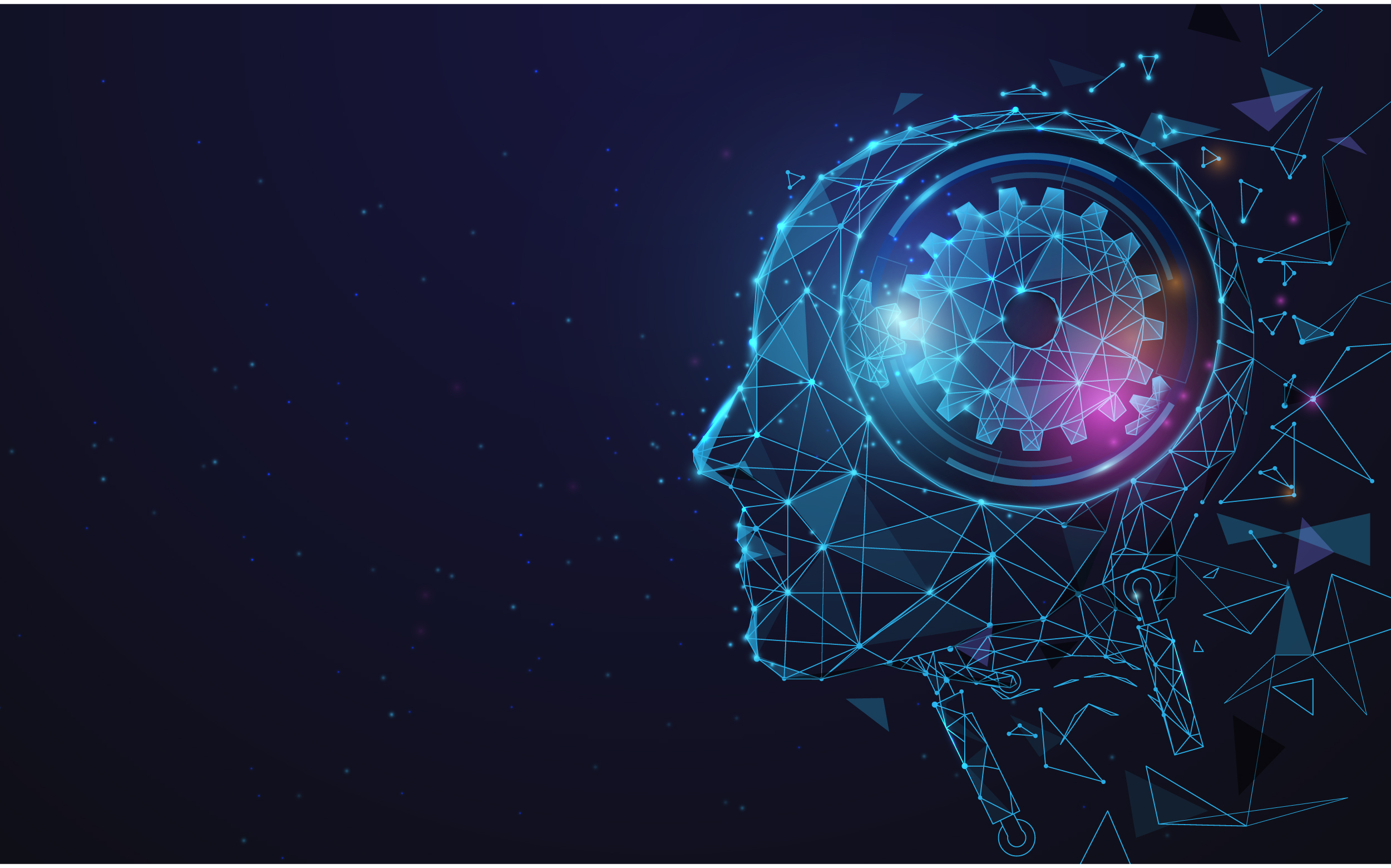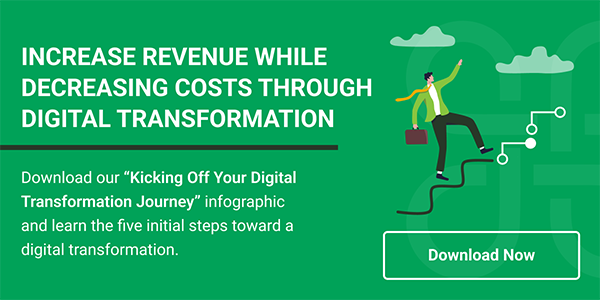Rather than a distant vision for the future, companies are beginning to see digital transformation as a strategic force in their ability to modernize, compete, grow, and create value for customers. One of the emerging aspects of successful digital transformation is artificial intelligence (AI). AI supports organizations’ strategies and objectives as they pursue innovation, flexibility, and adaptability.
Digital transformation is a journey, one that looks different for every business. The stakes are only getting higher as companies attempt to navigate a path full of roadblocks. That’s where AI becomes the ideal intercept. Let’s look at some of the AI trends that are impacting digital transformation and what they could mean for your business.
Digital Transformation and AI: How They Intersect
Achieving digital transformation involves adopting technology, processes, and methodologies to meet goals around efficiency, value, and innovation. AI is a critical component of this process. Companies realize the importance of AI, with 98 percent using it in some capacity. However, 89 percent still face challenges, and only 14 percent fully implement their AI strategy.
AI’s Role in Digital Transformation
Digital transformation involves integrations and automation, and AI is a critical tool for both as well as the aggregation and analysis of data. Data is the new currency for business and is valuable to the digital transformation space. AI makes data more powerful and actionable.
AI enables innovation that directly impacts how a company competes and meets customer expectations, which is central to digital transformation.
AI is complex but not inaccessible. As evidenced by its adoption numbers, AI is already heavily used—partly because it doesn’t require a large investment. Many cost models offer the opportunity for SMBs to take advantage of AI. You also don’t need expertise, just partners and tools to support you.
AI is a necessary component of any successful digital transformation and can deliver many benefits. As such, companies need to embrace AI across the enterprise.
Improving Digital Transformation with AI
You can optimize any technology related to digital transformation objectives with AI. AI doesn’t replace human intelligence in this scenario but augments it. Improving technology with AI can mean a lot of different things, many of which have to do with automation.
The general building block of automation is robotic process automation (RPA). In combination with AI, RPA delivers value for businesses in terms of supporting productivity, getting insights from data faster, removing waste from processes, and acting proactively rather than reactively.
With this in mind, let’s look at some of the biggest recent AI trends in digital transformation.
AI Trends in Digital Transformation
Here are four trends your organization should have on its radar as you work toward digital transformation goals.
1. Conversational AI Makes Interactions More Human
The use of conversational AI is becoming more prevalent, especially in customer service. This type of AI is superior to chatbots because it uses natural language processing (NLP) and natural language understanding (NLU) to mimic the style of human conversation by understanding tone and sentiment.
An example of using conversational AI in your business is deploying it within your customer service platform to act as a front line for customer support. This elevated self-service will help prevent queries from ending up in queues and make sure customers get fast resolutions to their questions.
2. AIoT Delivers Actionable Data
Artificial Intelligence of Things (AIoT) brings together AI and IoT. The purpose of adding AI is to increase efficiency around IoT operations and enhance data management and analytics by collecting data from sensors and analyzing it.
The use of AIoT is prevalent in the manufacturing industry and anywhere else with equipment or field assets. IoT devices deliver data on performance and usage. When companies add AI to the mix, the data becomes more actionable, prompting operators to identify proactive maintenance or part replacement. In turn, these companies reduce the risk of downtime.
3. AIOps Improves Software Deployment
Artificial Intelligence for IT Operations (AIOps) applies AI and machine learning to automate IT processes. IT is central to all digital transformation, so implementing AIOps can help teams work smarter, not harder.
A great example of AIOps at work is bug-finding and fixing. Often, IT doesn’t become aware of a bug until a user encounters it after deployment. In this scenario, not only is the user experience impacted, but the bug could also delay further rollouts and cost businesses time and money. AIOps works as a predictive tool to find anomalies and bring them to the attention of developers before launch.
4. Hyperautomation Takes Automation to the Next Level
Hyperautomation is the merging of RPA, AI, and machine learning. With this approach, you can automate more than basic repetitive tasks, augmenting human work with an end-to-end process.
Hyperautomation can improve almost any daunting process that’s document-heavy and requires some type of assessment. The financial industry, for example, could use hyperautomation to manage the mortgage process. RPA bots would extract information and then input it into the required systems. The AI element would then check for fraud, verify accuracy, screen for missing data, and score the application.
Digital Transformation and AI: Where Are You on the Journey?
Regardless of where you are on the path to digital transformation, AI can accelerate your journey toward gaining efficiencies and reducing costs. Get insights on how to traverse your path to digital transformation by downloading Kicking Off Your Digital Transformation Journey.



